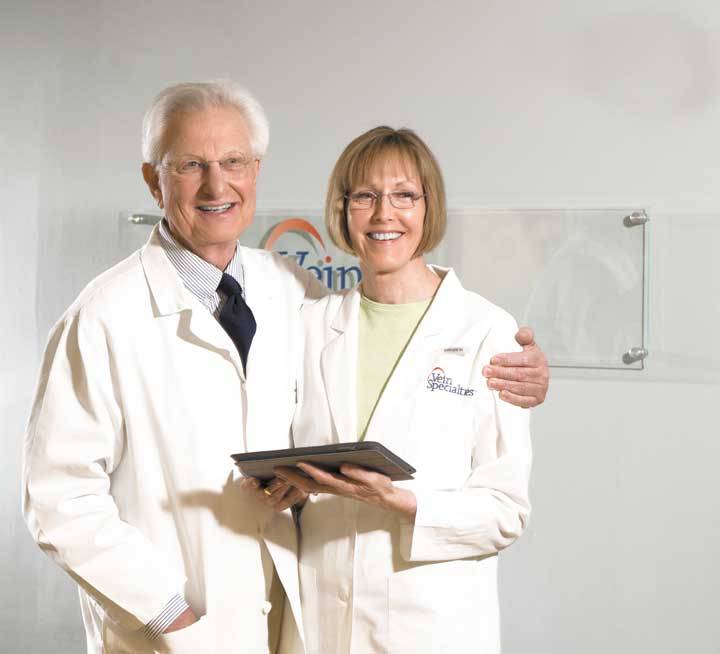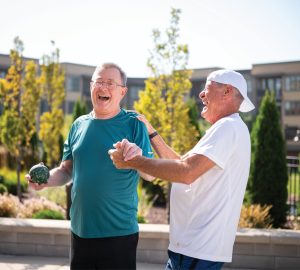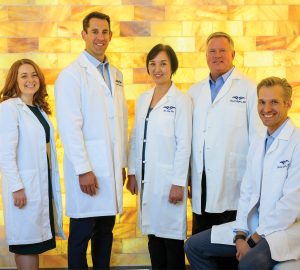Varicose veins are ugly, like a bulging map of old age all over your legs and thighs. They can hurt, too. Dysfunctional leg veins can cause congestion and pressure buildup, resulting in inflammation, cramping, burning, itching and restless leg syndrome. If ignored, they can lead to serious complications, including clot formation. Tiny spider veins, a milder variation, can be troublesome as well. No wonder people want to get rid of of them—and no wonder so many treatment centers have sprung up around St. Louis.
But buyer, beware. Just because someone calls themselves a vein specialist doesn’t mean they have training or experience. “In Massachusetts, Blue Cross & Blue Shield no longer reimburses vein procedures unless they’re done by a vascular surgeon,” says Dr. Norman Bein of Vein Specialties. “But in Missouri, dermatologists, radiologists and cardiologists do it as a lucrative sideline. Heck, it wouldn’t surprise me if dentists were doing it!”
But often, these so-called ‘specialists’ aren’t qualified to treat vascular issues, says Bein, a board-certified surgeon. “In fact, the only training many of them have comes from the companies that sell them laser equipment or sclerotherapy solutions,” he says. “My team and I see an increasing number of patients suffering from nerve damage, infections, scarring and other complications caused by inappropriate diagnosis and treatment at other practices. For example, the veins have been surgically stripped—an outdated, painful procedure requiring a hospital stay and a long recovery period—when they should have been treated with lasers. Or the doctor uses lasers but misses an underlying pathology. Or the varicose veins return because the doctor didn’t understand or deal with the underlying cause.”
Varicose veins, a hereditary condition, affect anywhere from 25 to 60 percent of the U.S. population. “A healthy venous system pushes blood from the feet toward the heart, so it can be re-oxygenated in the lungs and pumped around the body,” Bein explains. “But when the valves within the veins are dysfunctional, blood pools in the veins, causing congestion, pressure buildup and ropy bulges.”
Injury or the stress of pregnancy, with its hormonal fluctuations and increased blood volume, can contribute to the condition, Bein notes. Depending upon the diagnosis, treatment options include laser closure of the veins or sclerotherapy, in which smaller veins are injected and sealed with a chemical solution. “But some doctors sign patients up for ‘maintenance’ treatments, injecting them 30 separate times,” he says. “If the treatment is done correctly, patients don’t need maintenance injections.”
Bein gives every patient a thorough ultrasound evaluation prior to treatment. “To treat varicose veins correctly, you need to understand what’s causing them,” he says. “I’ve done more than 10,000
vein procedures with no infections or complications. You can’t do the job right if you don’t know how. If you have any concerns about a proposed treatment plan, seek a second opinion from a vascular surgeon. Don’t trust a doctor just because he or she wears a white coat.”
by Tony Di Martino
Pictured: Dr. Norman Bein and Clinical Director Maria Bein, RN of Vein Specialties
PHOTO: Tim Parker Photography
VEIN SPECIALTIES IS LOCATED AT 11456 OLIVE BLVD., STE. 200, IN CREVE COEUR AND AT 1987 HIGHWAY A, STE. 200, IN WASHINGTON, MO. FOR MORE INFORMATION, CALL 314.993.8233.








